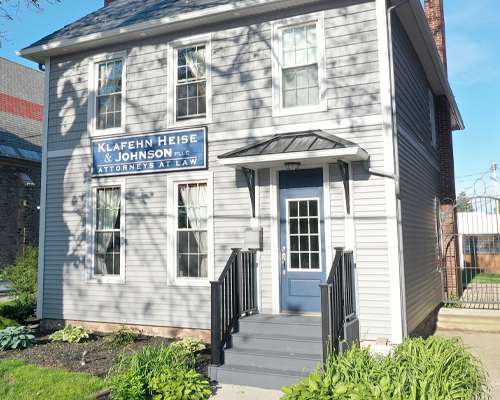How can Medicaid planning help protect assets for seniors facing nursing home costs?

The cost of nursing home care can be a significant financial burden for seniors and their families. However, Medicaid planning offers a valuable solution to help protect assets while ensuring seniors receive the necessary care.
In this article, we will explore how Medicaid planning can assist seniors in safeguarding their assets when facing nursing home costs.
If you require specific legal advice, we recommend consulting with an attorney, such as Kevin Johnson, at Klafehn, Heise & Johnson PLLC. Contact our office at 585.637.3911 or reach out to us online to learn more.
Understanding the Financial Challenge of Nursing Home Costs
Nursing home care is an essential service for seniors requiring focused medical attention and assistance with daily activities. However, the expenses associated with nursing home care can quickly deplete a person's life savings and assets. Many seniors find themselves in a precarious financial situation, as they attempt to balance the need for quality care with the desire to preserve their hard-earned assets for their loved ones.
The Role of Medicaid Planning in Asset Protection
Medicaid planning plays a crucial role in protecting assets for seniors facing nursing home costs. Medicaid is a government program that provides healthcare coverage for individuals with limited income and resources. By engaging in Medicaid planning, seniors can structure their finances in a way that qualifies them for Medicaid benefits while preserving their assets. Here's how Medicaid planning can help:
- Asset Conversion
Medicaid has strict asset limits that individuals must meet to qualify for benefits. Medicaid planning helps seniors convert countable assets into exempt assets, allowing them to meet the eligibility criteria. This can involve transferring assets to a spouse, creating certain types of trusts, or investing in exempt assets like a primary residence. - Spousal Protections
Medicaid planning takes into account the financial well-being of the spouse who remains in the community (the "community spouse"). Measures can be taken to ensure the community spouse has sufficient income and resources to maintain their quality of life while the other spouse receives the necessary nursing home care. - Look-Back Period and Penalty Period Mitigation
Medicaid has rules in place to prevent individuals from transferring assets solely for the purpose of qualifying for benefits. Medicaid planning can help navigate the look-back period, which is a period of time during which asset transfers are scrutinized. By planning in advance, seniors can minimize or eliminate any potential penalty periods that may result from transfers made within the look-back period. - Preserving the Family Home
The family home holds significant sentimental and financial value for many seniors. Medicaid planning can help protect the family home from being sold to cover nursing home costs. Strategies such as transferring ownership, utilizing certain trusts, or taking advantage of exemptions can help safeguard the family home while ensuring Medicaid eligibility.
Medicaid planning provides seniors facing nursing home costs with the means to protect their assets while still receiving the necessary care. By engaging in asset conversion, considering spousal protections, navigating look-back periods and penalty periods, and preserving the family home, seniors can preserve their hard-earned assets and access the financial support they need. However, Medicaid planning is complex and requires careful consideration.
To ensure you make informed decisions and navigate the process successfully, consult with an experienced attorney, such as Kevin Johnson at Klafehn, Heise & Johnson PLLC. Contact our office at 585.637.3911 or reach out to us online to get more information and personalized guidance.
Legal Disclaimer: This article provides general information about legal strategies in Medicaid planning to ensure long-term care needs are met without depleting assets. It should not be construed as legal advice or a substitute for consulting with an attorney. Each individual's situation is unique, and laws can vary from state to state. For specific legal advice and guidance tailored to your circumstances, consult with the attorneys at Klafehn, Heise & Johnson PLLC in Brockport, NY. You can contact us here. Portions of this account are considered ATTORNEY ADVERTISING under the New York State Unified Court System Rules of Professional Conduct (22 NYCRR Part 1200). Prior results do not guarantee a similar outcome.
‹ Back













